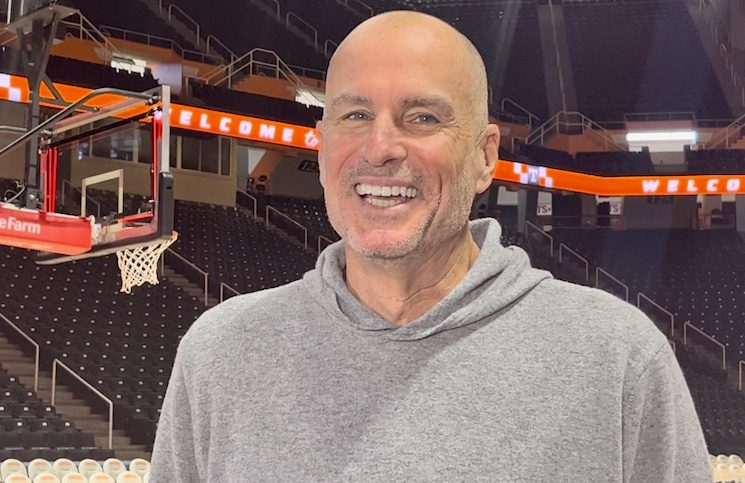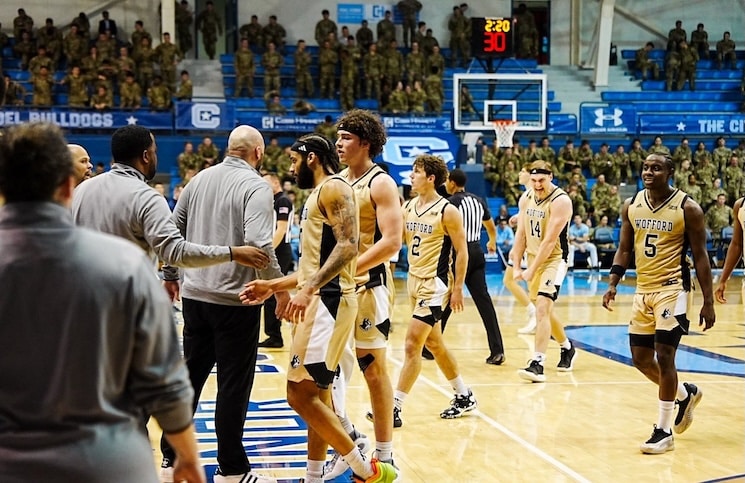Brady Still Undecided On Retirement
After each week of the season that Tennessee plays at least two games, “The Starting Five” will analyze the previous week of play from the Big Orange while highlighting questions Tennessee is facing in the coming weeks in five subheadings.
Tennessee extended its winning streak to three games with a come from behind win over Florida on Wednesday night before the Vols’ miraculous comeback bid came up just short at Texas.
Now, on to the starting five.
A Week Of Runs
A Tennessee basketball team that’s been defined by its inconsistencies retched it up a notch this week. The Vols were no longer inconsistent from game-to-game, but were incredibly inconsistent within their two games.
The win over Florida was the greatest example. The Vols scored 78 points — the second most in SEC play behind the Kentucky loss — and shot a strong 45% from the field, 46% from three-point range and 94% from the free throw line.
For all intents and purposes, it was a really good game for Tennessee’s offense.
However, Tennessee had two five minute scoring droughts including a stretch of seven straight possessions where they turned it over.
Against Texas, the Vols’ offense struggled horribly for most of the game, sitting at a dismal 35 points with six minutes to play. Then, suddenly, Tennessee looked like a completely different team, going on a 16-1 run to end the game.
In what was objectively a bad game for Tennessee’s offense, they had a tremendous stretch where they looked near flawless. It was almost enough to propel them to a comeback win.
In two games, Tennessee had a pair of runs greater than 10-0. At the same time, they gave up three runs greater than 10-0.
“Well, offense. I mean turning down shots and then free throws play into that some too,” Tennessee head coach Rick Barnes said. “I mean there is no doubt about it. When you miss those one-and-ones. They are critical, those are critical misses; but two-shot fouls you miss those. And you couple those with the fact that you turn down shots that turn into bad possessions. And you throw some turnovers in there. That is how most people get runs going. … I think that is the mental part with players. Players know when they feel like they are going to make a shot. When the doubt creeps in, it slows things down and gets people back on their heels and that is what leads to inconsistency.”
The two games defined Tennessee’s season. At times good enough to make you think they can make a deep run in March— all while narrowly winning. At other times, they look like a team that couldn’t hope to win a NCAA Tournament game — all while narrowly losing at a top 15 KenPom team.
Vols Control The Glass
Tennessee doesn’t have a player that averages six rebounds per game and doesn’t have a consistent interior force this season.
So it may come as a surprise that Tennessee is a strong rebounding team for the first time since Grant Williams and Kyle Alexander manned the Vols’ frontcourt. Tennessee ranks 50th in the country in offensive rebound rate and 91st in defensive rebound rate. In fact, this season is the first time in the Rick Barnes’ era that Tennessee ranks in the top 200 of defensive rebound rate.
The Vols’ strong rebounding is not a result of one or two elite rebounders, but of a large quantity of solid rebounders.
Six Tennessee players average over 2.6 rebounds per game while guard Santiago Vescovi and wing Josiah Jordan James both average over 4.5 rebounds per game.
In the 1-1 week, Tennessee controlled the glass in both games. The Vols outrebounded Florida, 34-24, before out rebounding Texas, 32-27, and 15-4 on the offensive end.
The efforts on the glass was a big difference in the win over Florida and was a major part of the Vols’ comeback at Texas.
Tennessee isn’t rebounding at an elite rate that’s capable of taking over every game, but this is the Vols’ best rebounding team in some time. Combine that with the way we know Tennessee plays defense, and that’s a good place for a team to start.
Frontcourt Inconsistency Is A Part Of This Team
From the very first thing I wrote about this Tennessee team at the start of preseason practice to now, whether the Vols could find consistent frontcourt play has been a major question for this team.
While we probably knew the answer once John Fulkerson began struggling at the start of SEC play, I’m officially ready to say it now. Tennessee’s frontcourt is not consistent and there’s’ not a player you can count on night in, night out.
Uros Plavsic impressed in his first week starting, but the center’s inconsistencies showed up last week. Plavsic didn’t score while playing just nine minutes against Florida before recording just four points and three rebounds against Texas.
Barnes credited Plavsic’s lack of minutes against Florida due to matchups, but the center’s week served as a reminder that Tennessee can’t count on five points and five rebounds from him each night.
In fact, since SEC play began Plavsic is the only UT big man to record five points and five rebounds in back-to-back games.
Frontcourt inconsistencies are just the reality with this team. That’s why I’m such a fan of how Rick Barnes is handling them. Barnes is getting Fulkerson, Plavsic, Nkamhoua and Brandon Huntley-Hatfield playing time in the first five minutes of every game and then riding the hot hand.
The seventh-year head coach needs to do that because he can’t rely on one of them to bring it every single night. The game-to-game patience and extended minutes from Josiah Jordan James at power forward is Tennessee’s best answer to the issue.
Can Tennessee Turn The Tide With Road Performances?
There’s a pretty clear split in Tennessee’s record this season. The Vols are 11-0 at Thompson-Boling Arena, 1-2 at neutral site locations and 2-4 in true road games.
So, yeah, Tennessee is a lot better team at home. That makes sense. Home court advantage is absolutely massive in college basketball, and beating quality opponents on the road is a challenge.
Still, a 2-4 record on the road is not good enough for a team that strives to finish in the top four of SEC play and to earn a top five-seed in the NCAA Tournament.
This team’s reliance on three-point shooting and lack of a true go-to scorer is a big detriment in road games. However, the Vols simply have to perform better on the road.
So, is there a reason to believe Tennessee can improve its road record?
The answer is yes due to the road schedule they’ve faced. Tennessee has faced three of the SEC’s top five teams already on the road and its hardest road game left on the schedule is Arkansas.
Tennessee also still has road matchups against below average SEC teams: South Carolina, Missouri and Georgia.
Still, Tennessee’s offensive deficiencies make it possible to play close games and lose to any SEC team on the road (just ask Alabama).
If the Vols are going to have the close to the season they want, they need to go no worse than 3-2 the rest of the road schedule.
The challenge gets easier on the road for Tennessee, but the Vols have to fully capitalize on it if they want to end the regular season strong.
What To Make Of The Free Throw Inconsistencies?
Tennessee’s ability to get to the free throw line and make them has been a point of concern all season. The Vols entered SEC play shooting just 11 free throws per game. That’s an incredibly low mark that was by far the worst in the SEC.
The Vols have done a much better job getting to the charity stripe in SEC play — though they still rank 12th in the SEC — and are now attempting 16 free throws per game.
Tennessee hasn’t just struggled making it the free throw line, but has struggled capitalizing once they get there. The Vols’ 68% shooting from the charity stripe ranks 12th in the SEC play. The biggest culprit of the missed free throws is freshman point guard Kennedy Chandler who’s making just 68% of his free throws.
What’s so odd about the free throw shooting is that Tennessee has games where it is fantastic at the free throw line. Against Florida, Victor Bailey Jr. missed the Vols’ first free throw of the game before Tennessee made 17 straight free throws to end the game.
Tennessee’s free throw shooting was also clutch in its win at Vanderbilt with the Vols knocking down 21-of-25 free throws.
Still, there’s been games where Tennessee’s free throw shooting has been awful and been the cause of its downfall. Look no further than the Texas game, where Tennessee made just eight-of-16 free throws and missed the front end of the bonus three times in a one-point loss.
Ironically, the Vols also shot eight-of-16 from the charity stripe in their narrow loss to Texas Tech.
Tennessee has shown the capability to be a strong free throw shooting team, but its inconsistencies are even greater than the offense’s as a whole. That could come back to bite them in a big way in March.



